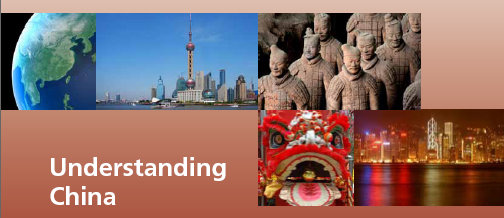Understanding China
Brian Hennessy. An Australian in China. May, 2010
“We need to ramp up the critical mass of Australians who are China literate… Unless we do so, our relations with China risk being seriously undermined by miss-perceptions and neglect.”
Alan Dupont, director of the Centre for International Security Studies at the University of Sydney, published in The Australian Newspaper, April 12, 2010.
“We seem to have made a decision as a nation that we are determined to go boldly into Asia as ignorant as we can possibly be.”
Greg Sheridan, Foreign editor, The Australian. June 27, 2010.

Learning about the nuts & bolts of China
______________________________________________________________
Along with other western democracies, Australia has a lot to learn about China.
It is in Australia’s national interest that its citizens become better informed about their regional neighbour and number one trading partner. A partner which underpins Australia’s continuing growth and prosperity. At the present time however, it is difficult for ordinary Australians to gain a deeper cultural, historical, or political understanding of China and her 5000 year history.
Public opinion in western democracies towards one-party states such as China is generally shaped by a media which all too often attempts to explain this rising power and her behaviour in politically simplistic terms. This is not good enough.
Although China must share part of the blame for her sometimes negative international image, we westerners are entitled to expect better reporting from our independent media. Journalists who do not do their cultural homework cannot offer a Chinese perspective on events. As a result, their view of the big-picture is flawed and their readership is ill-informed.
Australian people could be better informed about China. For example; what do we know about China’s long history? How do traditional cultural values influence Chinese contemporary thinking and behaviour? What lies underneath the surface that is presented to the outside world?
We need to know these things if we hope to understand China better. We need to know these things if we are dealing with China. Dealing with China is never easy.
That said, who will educate middle Australia about our mysterious neighbour to the north? The media? Academia? The Australian government?
- The media: the media is neither an educator nor a shaper of national values – it is a reflector of these things. The daily news cycle is an economic imperative. Thus emotive articles on Tibetans and Uyghurs in the western provinces of China will always capture more readers than dispassionate commentary on the huge problems facing the central government in Beijing.
- Academia: that’s where the knowledge and understanding is. However, academia suffers from three disadvantages: (i) academia talks to itself, and not to Mr and Mrs Suburbia in the Australian community where attitudes are formed; (ii) although academia’s impartial understanding is useful in an advisory or pedagogical sense, academia punches well below its weight; and (iii) academia lacks ‘boots-on-the-ground’ experience or relevance. The latter is vital for understanding China. China is a tough place.
- The government: although our own cultural values constrain the government from telling us what to think and how to behave, we expect our governments to lead. Giving a lot of money to The Australian Center on China in the World at ANU is not leadership. In the meantime, there is a growing percentage of intelligent Australians who want to learn more about China. This group knows that the next generation of Australians will need to be China literate if it hopes to take advantage of the opportunities that will present themselves as the Australia-China relationship matures. Given the government’s lack of leadership in this regard, it looks like individual Australians will have to inform themselves about rising China and its implications for our nation’s future.
How can this be done?
By Australian individuals:
- Demanding better quality information from the media;
- Encouraging academia to become relevant players in the messy world of business, the media, and politics; and
- Lobbying their governments to invest more tax dollars on Chinese language and culture courses in primary and secondary schools, and in local tertiary institutions.
Although the establishment of The Australian Center on China in the World is a step in the right direction, this initiative reflects a continuing top-down academic bias to the task of educating more Australians about China. It risks being ridiculed by informed Australians as an ivory tower irrelevance. Window dressing. Or as the Chinese themselves would say: “face”.
We can do better than this. Bottom-up, nuts and bolts courses in Chinese language and culture in ordinary schools across the nation is the way to go. In the long run, this is how ordinary Australians will take up the challenge of getting to know more about China and its 1.3 billion people.
It is in our national interest to do so.

UPDATE: “We will need the cultural understanding to negotiate and develop personal, business, government and institutional relationships in languages other than English. We will need an education system – right from the very earliest years of schooling – that acknowledges and recognises Asian culture and history, equipping the next generations to operate more effectively in an Asia-centred world.” Ken Henry. Author of Government white paper on Australia’s future involvement in Asia titled ‘Australia in the Asian century’. August, 2012.
Study Chinese language and culture in Cairns.
Contact Assistant professor Yirong Li: liyirongplum@gmail.com
________________________________________________________________________
